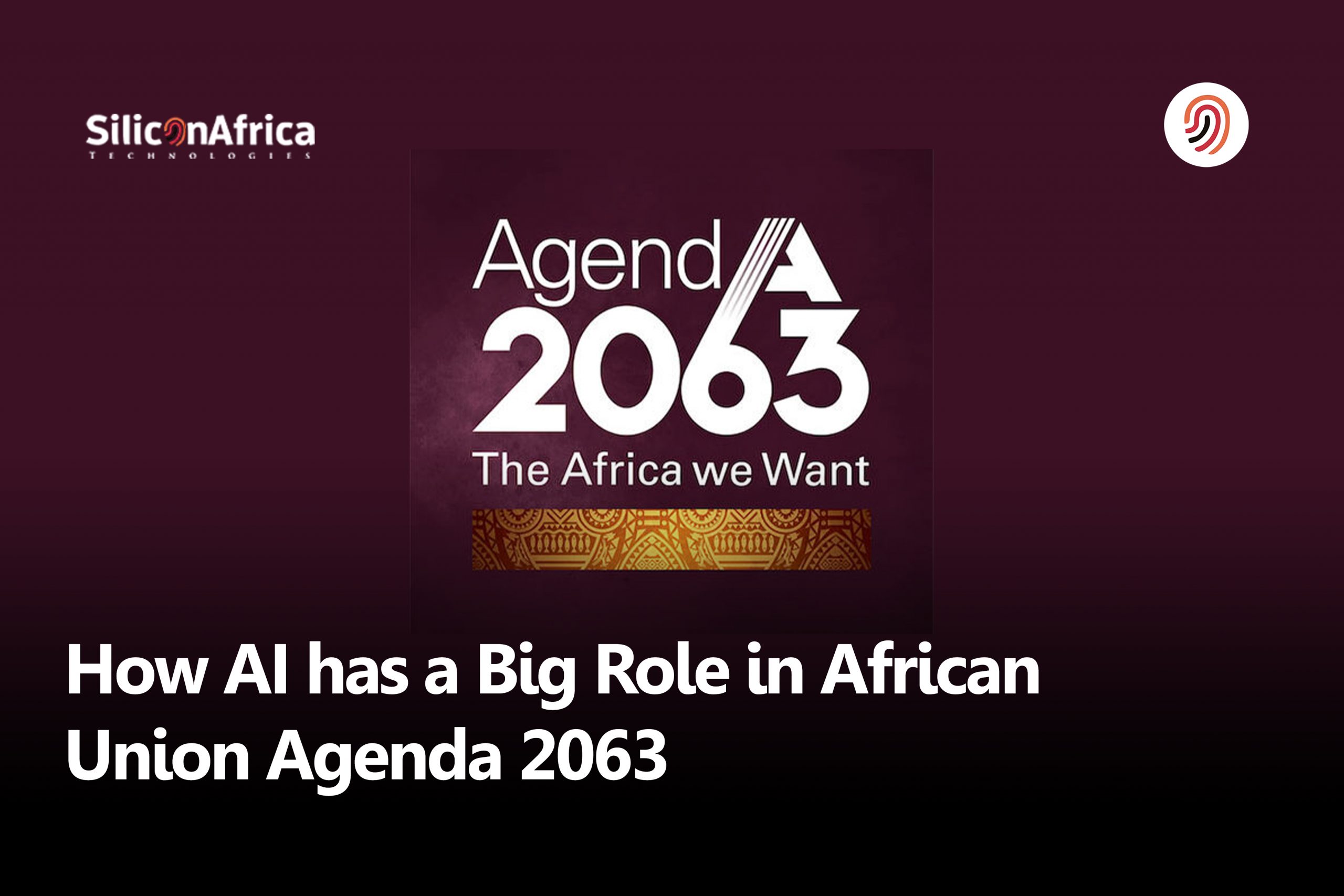Physical Address
60 Ekwema Cres, Layout 460281, Imo
Physical Address
60 Ekwema Cres, Layout 460281, Imo

Artificial intelligence (AI) has rapidly progressed over recent years and now finds application in myriad sectors, profoundly revolutionizing the global landscape.
For Africa, AI presents untapped potential for driving the continent towards the African Union’s ambitious Agenda 2063. This vision maps out the path for transforming Africa into a global powerhouse of the future, setting the strategic framework for the socio-economic transformation of the continent over the next 50 years.
With its impressive abilities, AI is undoubtedly playing a significant role in accelerating Africa’s move towards a more digital, inclusive, and innovative continent.
From enhancing efficiency in sectors like healthcare and education to promoting sustainable farming practices, artificial intelligence could hold the key to achieving the goals set out by the African Union.
This article aims to delve into this critical aspect, highlighting AI’s enormous potential in shaping the continent’s future. So read on!
The African Union’s Agenda 2063 is a strategic framework for transforming Africa into a global powerhouse of the future.
It emphasizes seven primary areas for development, including an inclusive and sustainable economy, an integrated continent with seamless borders, a quality standard of living and well-being for all citizens, democratic values, justice, peace, and security, a unified cultural identity and heritage, and strong institutions and leadership.
The plan envisages robust strategies, programs, and projects that guide each nation towards a prosperous, integrated, and peaceful Africa. It outlines realistic and achievable goals by engaging all sections of society, emphasizing particularly the youth and women. To enable this, a ten-year implementation plan has been developed for achieving the long-term vision.
Overall, Agenda 2063 encapsulates the African Union’s vision of an Africa-driven and Africa-financed journey towards social, political, and economic transformation within the next few decades. The emphasis is on inclusive growth and sustainable development, fostering an African continent driven by its citizens.
Also read: 20 Technology Trends in 2024 that will Blow Your Mind Away
Artificial intelligence (AI) has made unprecedented leaps in various industries, and the African Union is not exempt from this tech wave. They have announced their embrace of AI as a critical tool to drive the development and economic agenda, named Agenda 2063.
In recognizing the potential of AI, the African Union seeks to incorporate it into the vision and developmental framework of the continent to achieve long-term goals.
Artificial intelligence is promising in numerous fields such as agriculture, health, and education, which are critical areas of concern in Africa. Using AI can greatly optimize productivity and efficacy in these sectors.
The African Union’s move to embrace AI also means preparing for a future labor market influenced by AI. As with any major technological adoption, it necessitates workforce adaptation. In this light, investing in the skills and knowledge associated with AI is imperative to future-proof the workforce and drive sustainable economic growth.
By investing in AI, the African Union is indicating its understanding that technology will be a critical factor in determining Africa’s place in the future world order. Indeed, AI could be a transformative tool for the African continent as it pursues its path towards sustainable development.
Check Out the – Top 10 AI Innovations That will Change Our Lives in 2024-2025
The African Union Agenda 2063 is a strategic blueprint for transforming Africa into a global powerhouse of the future. It’s a comprehensive, inclusive, and technology-driven roadmap aiming to optimize the use of Africa’s resources for the benefit of all Africans.
Among various digital technologies, artificial intelligence (AI) plays a significant role in this vision, facilitating vast opportunities for progress in various sectors. Let’s take a look at how Artificial intelligence has a big role in Agenda 2063.

The integration of artificial intelligence (AI) within the Africa Union Agenda 2063 is crucial for its digital transformation strategy. AI is identified as an enabler of technological advancements, spurring changes across different sectors, from healthcare to education to agriculture to manufacturing.
With its ability to process massive data, recognize patterns, and automate tasks, AI offers great potential for improving operational efficiency, decision-making processes, and innovation.
In particular, the deployment of AI-powered digital platforms could promote e-governance, facilitate access to public services, and foster citizen engagement across Africa.

The role of artificial intelligence in the Africa Union Agenda 2063 goes beyond technology. It has significant implications for Africa’s economic landscape. By embracing AI, Africa can enhance its productivity and competitiveness in the global market.
Businesses can use AI tools for predictive analysis, cost reduction, and boosting efficiency, thereby improving profitability. On a broader level, AI-driven innovations can lead to the creation of new industries and job opportunities, which could stimulate economic growth.
Moreover, the strategic implementation of AI in critical sectors like agriculture and healthcare could revolutionize their productivity, positively impacting the African economy.

Artificial intelligence plays a critical role in actualizing the Africa Union Agenda 2063’s goal of improving agriculture and food security across Africa. With the integration of AI in agriculture, African countries can improve crop productivity and streamline farm management.
AI technology enables real-time analysis of agricultural data, weather patterns, soil quality, and disease detection, providing accurate forecasts for optimal farming practices. Furthermore, it facilitates precision agriculture by reducing waste and improving resource efficiency.
Therefore, AI can immensely support Africa in achieving sustainable farming and reducing food insecurity, consequently bolstering economic growth and fulfilling the AU’s 2063 agenda.

In the healthcare sector, the Africa Union’s 2063 agenda envisages improving accessibility, quality, and affordability of healthcare services, and artificial intelligence has a pivotal role in realizing these goals.
AI is becoming a key player in diagnosing diseases, personalizing treatments, predicting outbreaks, and improving patient care. With AI algorithms and machine learning, it’s easier to analyze massive health data and detect patterns and anomalies that assist in early disease detection.
Moreover, AI can help with remote patient monitoring, enhancing accessibility to quality healthcare in rural areas. By integrating AI in healthcare, the African Union could improve its healthcare systems’ efficiency and quality and bring us closer to achieving the 2063 agenda’s objectives.

Artificial Intelligence (AI) plays a significant role in achieving the Africa Union Agenda 2063 in terms of improving the quality and accessibility of education. AI has the capacity to revolutionize the African education system through the introduction of personalized learning and digital classrooms.
For instance, AI-powered educational apps can tailor education to the unique needs of every student, enhancing learning outcomes. Additionally, AI can also improve the efficiency of administrative tasks such as grading and student assessment.
As part of the Africa Union’s Agenda 2063, AI’s integration into the education system is a critical step towards ensuring equal educational opportunities for all and creating a skilled workforce in Africa.

Smart cities and infrastructure development are key goals in the Africa Union Agenda 2063, and AI is at the forefront of achieving this aim. Through the use of AI, Africa can revolutionize urban living by improving waste management, energy consumption, traffic control, and overall efficiency.
For instance, AI can be used to analyze traffic data, predict congestion, and manage traffic lights in real-time, leading to more efficient transportation. It can also be employed to predict and prevent infrastructure failure, enhancing safety and saving costs.
Therefore, AI can greatly assist in the realization of smart cities in Africa, pushing the continent towards a future of sustainable urban living and infrastructural efficiency.

Artificial Intelligence (AI) holds enormous potential for transforming Africa’s approach to the environment and climate change—crucial components of the Africa Union Agenda 2063.
Climate change impacts Africa heavily, causing irregular rainfalls and temperature fluctuations. AI can forecast these changes accurately, providing insights for preventive actions.
Additionally, AI tools like remote sensing, satellite data interpretation, and pattern recognition can enable timely disaster management. Moreover, AI-based environmental systems can assess soil health, plant growth, and guide sustainable farming.
Implementing AI can foster green initiatives like reforestation, improving Africa’s ecological health. Thus, the integration of AI can effectively steer Africa’s resilience towards environmental fluctuations, assisting in the Africa Union’s pursuit of a more sustainable and resilient continent.
Also Read: Digital Marketing Trends For 2024
Adoption of Artificial Intelligence (AI) can potentially transform economies, improve efficiency, and help address significant social challenges such as healthcare and education in Africa.
However, these advancements also come with ethical considerations to ensure that the adoption of AI technologies doesn’t perpetuate biases or inequalities, infringe on privacy, or foster dependency on foreign technologies.
Here are some of the steps that could be taken to ensure ethical AI adoption in Africa:
Governments in Africa should develop laws and regulations for ethical AI development and use. These should include principles such as transparency, explainability, accountability, privacy, security, and fairness.
There needs to be concerted efforts towards increasing technical skills within Africa. These should include initiatives to educate people on AI technology as well as the ethical considerations surrounding it. A local pool of expertise will help to develop AI applications that are tailored to the continent’s needs and understand local contexts better.
When designing AI technologies, ethics should be ingrained from the outset. This means considering how decisions made by algorithms could potentially impact individuals or communities and working to prevent unfair outcomes or harm.
Ethical AI requires the input of all stakeholders, including those who could be affected by the AI. Public consultations or surveys could be conducted to understand public concerns, and their feedback should be considered during the AI development process.
In the AI world, data is key. Hence, the ethical handling of data is critical. Personal data must be protected, privacy laws must be upheld, and data bias must be eliminated as much as possible. This requires both robust technological infrastructure and data management strategies.
Africa should foster collaborations with international bodies, technology firms, and other stakeholders. These collaborations could help Africa learn from global best practices, access cutting-edge AI technologies, and build its AI ecosystem.
Institutions using AI should establish internal ethics committees to provide oversight, ensure compliance with ethical guidelines, and promote responsible use of AI.
Governments and private organizations should promote and invest in research around AI ethics. Such research will facilitate a deeper understanding of AI technologies, their implications, and how best to navigate them ethically.
Overall, ethical adoption of AI in Africa requires comprehensive multi-stakeholder approaches that prioritize education, ethical frameworks, legislation, public participation, and responsible data handling. These will help the continent reap the immense benefits of AI while mitigating the risks.
Also check out – https://siliconafrica.org/four-nigerian-startups-on-the-final-list-of-africa-tech-summit/
Artificial Intelligence (AI) holds immense promise for socio-economic transformation across the African continent, potentially driving growth in various sectors from health, education, and agriculture to transportation and energy.
However, leveraging AI to help realize the African Union (AU) Agenda 2063, a strategic blueprint for transforming Africa into a global powerhouse, does not come without challenges.
The primary challenge faced by the African Union in incorporating AI into its 2063 Agenda is the limited technological infrastructure across many of its member states. Many regions lack sufficient internet access and computer literacy, making it difficult to leverage AI technology to its full potential.
With the use of AI technology comes an increased potential for data breaches and issues related to data privacy. As African countries adopt more AI-based technologies, there is a need for strong cybersecurity measures to protect the data from unauthorized access and ensure data privacy.
Africa currently lacks a critical mass of AI experts and professionals. Without a pool of well-trained and skilled AI specialists, implementing Agenda 2063’s AI goals could be problematic. This issue can be addressed through strategic investments in STEM education and vocational training.
Funding is another critical challenge facing the implementation of AI in Africa. AI technologies require significant investments, and many African countries have other competing priorities such as healthcare, education, and poverty reduction that may limit the resources available for AI initiatives.
Another issue with integrating AI technology into the AU Agenda 2063 is the lack of harmonized regulatory standards across member states. Regulations and standards regarding AI are not uniform across Africa, making it challenging to implement an AI program that meets the needs and regulations of all member states.
Despite these challenges, the African Union sees significant potential in using AI technology to help meet its Agenda 2063 goals. Overcoming these challenges will require significant investments, strategic partnerships, policy harmonization, and an unwavering commitment to building a technologically advanced Africa.
Within the ambit of the Africa Union’s Agenda 2063, the advent of Artificial Intelligence (AI) could herald groundbreaking changes for the African continent. Through innovations such as predictive analytics, AI is set to transform critical sectors such as agriculture, healthcare, and education.
It could play a vital role in solving pressing issues like food security and epidemic control. Also, through machine learning and data analytics, AI could significantly improve the continent’s economy by advancing business operations, stimulating start-ups, and influencing policy-making.
AI, coupled with other emerging technologies, has the potential to propel Africa into a future marked by robust development, equitable prosperity, and reinforced regional cohesion. Its optimal utilization could drive Africa’s journey towards sustainable development, democratization, and technological emancipation.
There are various initiatives underway in Africa that aim to harness the power of AI. Many countries have started integrating AI technologies in different sectors such as health, agriculture, finance, education, and transport. There is also a rise in AI research and innovation hubs, providing solutions to local challenges.
Ethical considerations in AI applications include the risk of AI perpetuating existing biases and inequalities, threats to privacy and security, concerns about transparency and accountability, and the impact on jobs and livelihoods.
International partnerships can help provide the necessary resources, expertise, and support to harness AI in Africa. They can facilitate technology transfer, capacity building, policy dialogue, and collaboration in AI research and development.